Record high water levels recorded at Skradinski buk waterfall – 254 cm!
17/05/2023
“Due to heavy rainfall and the massive amounts of water spilling out onto the trails, our most visited locations, Skradinski buk and Roški slap waterfalls, are currently closed to the public. We apologise for this inconvenience; however, safety is paramount,” stated Nella Slavica, director of the Public Institute of Krka National Park.
Due to the extremely high water levels of the Krka River, for the first time in the park’s history, certain sections are now closed to the public. On 16 May 2023, the water level at Skradinski buk was 254 cm, the highest value ever recorded since the start of measuring. Previously the highest water level was 223 cm, recorded on 7 December 2005. The lowest water level was just 5 cm and was recorded on 3 October 1990.
“Due to the massive amounts of water spilling out onto the trails, our most visited locations, Skradinski buk and Roški slap, are currently closed to the public. All boat excursions are also cancelled,” stated Nella Slavina. She added that until now, the Park was closed to the public only during the Homeland War and during the pandemic caused by the COVID-19 virus, and this is the first time in the Park’s history that it has been closed due to heavy rainfall.
“We apologise for any inconvenience caused due to closures of the Skradinski buk and Roški slap locations due to the heavy rains, especially children on school field trips, who are certainly most disappointed, and also to our partners and agencies and all visitors who are not able to experience these sites. We are all together in this situation: hospitality venues, family farms, and concession holder in the park, but safety must always come first,” stated Nella Slavica, adding, “We will only be able to assess the actual situation and any damages once the water withdraws, and until then we remain available for any information. We invite our partners and visitors to visit the upper course of the Krka River, and to discover its natural, cultural and historical features, and the many new features we have designed and completed. I promise that no one will be left disappointed.”
All the sites in the upper course of the Krka River are open to the public, where visitors can view the Manojlovac waterfall, the tallest waterfall on the Krka River, or take the opportunity to visit the new Krka Eco Campus in Puljane, the Burnum Roman amphitheatre, or the magical Krka monastery. Visitors can stop at one of the five equipped viewing points to enjoy and photograph the unbelievable sights of the combined waters of the Krka and Čikola Rivers, Čikola Canyon, Visovac Island – a gem of Croatian heritage, the Krka monastery and the Brljan waterfall, which is currently at its fullest and most beautiful.
The water regime of the river depends on many factors, such as weather, climate and precipitation. During the year, the Krka catchment receives about 1250 mm of precipitation. The most rain falls in the winter months, while the summer are very dry. The highest water levels of the Krka are usually recorded in November and March, and the lowest in August. Krka National Park has a long-term contract with the State Hydrological and Meteorological Institute in Zagreb, which conducts daily measurements of water levels, temperature and flow, which is then calculated, at the sites Skradinski buk and Roški slap. The long-term goal is the establish monitoring along the entire course of the Krka River.
News
JOŠ NOVOSTI IZ KATEGORIJE
Hrvatska turistička kutija iznenađenja stigla u Nacionalni park „Krka“
U sklopu projekta „Kultura, turizam i strukovno obrazovanje“, koji je odabralo Ministarstvo turizma i sporta, učenici Srednje škole Ivana Meštrovića Drniš i Ekonomske i upravne škole Split posjetili su Eko kampus „Krka“ u Puljanima
The 20th Meeting with the local inhabitants will gather together olive growers
At this year’s first meeting of olive growers from the wider area of the Krka River, the preparation of olive trees for successful flowering and fertilization will be discussed
Celebrating European Wool Day in the ethno-village at Skradinski buk
Join us at the ethno-village at Skradinski buk on Friday, 9 April 2024, so that we can celebrate European Wool Day together
As a contribution to the preservation of biodiversity, thirteen new beekeepers were trained
The Public Institute of Krka National Park in cooperation with the Open University of Knin conducted a training program for beekeepers
